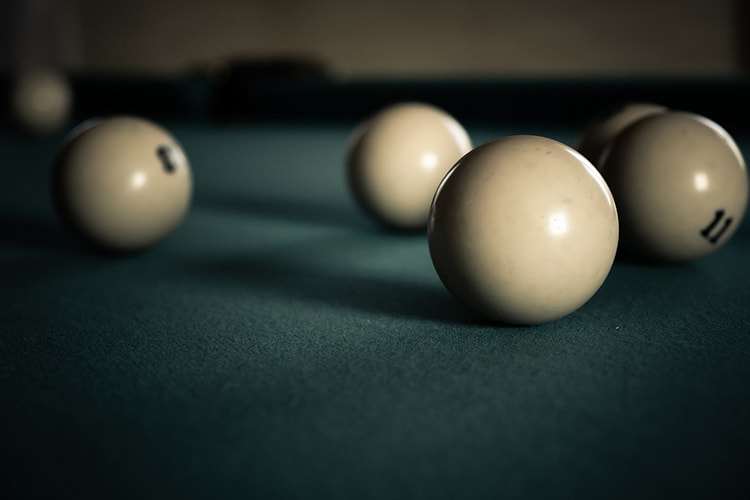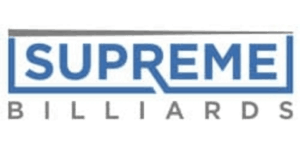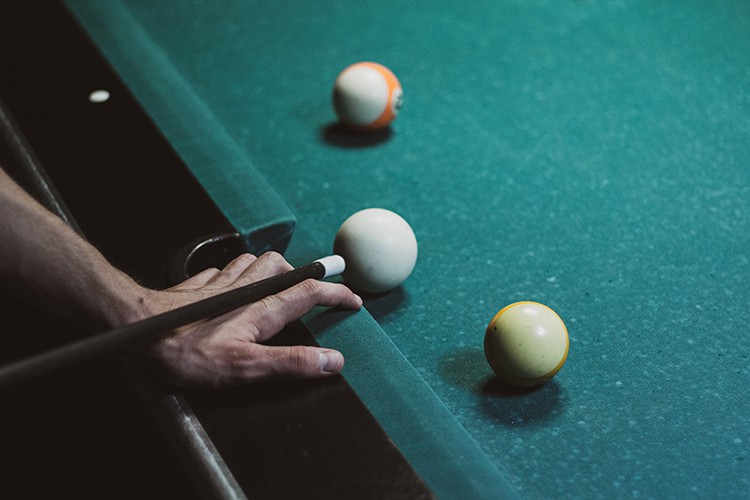If you’ve put your cue ball on the table and notice that it is no longer a vibrant white, don’t panic. It is completely natural for pool balls to yellow over time. It doesn’t mean you’re not cleaning them enough or that you’ve ruined them.
Pool balls made out of phenolic resin will turn yellow over time. This yellowing is caused by exposure to UV light, heat, and the air causes the phenolic resin to break down, which gives the ball an offwhite appearance.
So, now you know why pool balls turn yellow, but you probably still have some questions. In this article, we will discuss the causes of yellowing, how to prevent yellowing, and what you can do about yellow pool balls.
The Cause of Yellow Pool Balls
Pool balls yellow as the material that they are made of breaks down.
- Phenolic resin, which most pool balls are made of, yellows when it is exposed to UV light, heat, or even the air. It is simply a sign of age.
- Polyester resin pool balls typically don’t yellow. They will become gray.
- Ivory pool balls, which are generally antiques, yellow for similar reasons. As ivory ages, it yellows.
Some people argue that storing pool balls in a dark location causes them to yellow, but it likely has little to do with the dark and more to do with heat exposure and natural aging.

How to Prevent Your Pool Balls From Yellowing
There isn’t a whole lot you can do to prevent yellowing outside of taking good care of your pool balls and storing them properly.
Here are some tips for storing your pool balls to prevent yellowing:
- Store them inside of a case with a lid, like this Pool Ball Carrying Case.
- Keep the case in an environment that does not experience high temperatures.
Taking these steps may help reduce the yellowing of pool balls, but the balls will still yellow eventually.
We have a great post on ball sets if you’re looking to make a new purchase.
Are Yellow Pool Balls a Problem?
Unlike having dirty pool balls, the yellowing of a pool ball will not affect gameplay at all. It is nothing to be concerned about outside of the obvious aesthetic issues.
So as long as you don’t mind the way it looks, you can keep using the yellowed pool balls for playing without worrying.
In fact, many people embrace the off-white look of their pool balls, as it means that the ball is made from quality material.
Curious about the cue ball? Check out our post Is the cue ball smaller than the other balls?
How to Make Your Pool Balls White Again
You may never get those pool balls absolutely white again, but you can reduce the look of the yellowing. We recommend the following methods:
- Pool Ball Cleaner, Restorer, or Polisher: We like the Aramith Billiard Ball Cleaning Solution and Aramith Billiard Ball Restorer. These will help with yellowing, keep the balls clean, and restore their shine.
- Pool Ball Cleaning Machine: A pool ball cleaning machine will get your pool balls cleaner and better looking than a polish, but they are more of an investment. The Bulletproof Billiard Cleaning Machine is one of the more economical options, and totally worth it.
Those are your best options to help your pool balls look their best. There are several methods suggested across the internet that we don’t recommend as it makes your pool balls look worse or even damage them.
What NOT to do:
- Put them in the dishwasher. The high heat and cleaners used in dishwashers are not good for the balls, and it may remove the color on the balls.
- Use bleach. Beach will leave pink dots on the ball that are impossible to remove.
- Use abrasive cleaners. Abrasive cleaners can actually damage the balls and should be avoided.
- Use anything not intended for use on a billiard ball. If it isn’t designed for billiard balls, then it may damage the ball.
In Conclusion
The yellowing on pool balls is caused by aging and happens relatively early in the life of a pool ball. Over time, the yellowing will deepen. It doesn’t affect how the ball moves across the table, and so it should not be considered a problem.
Cleaning and polishing will help reduce the yellowing, but eventually, you will need to replace the balls if the yellowing bothers you.

